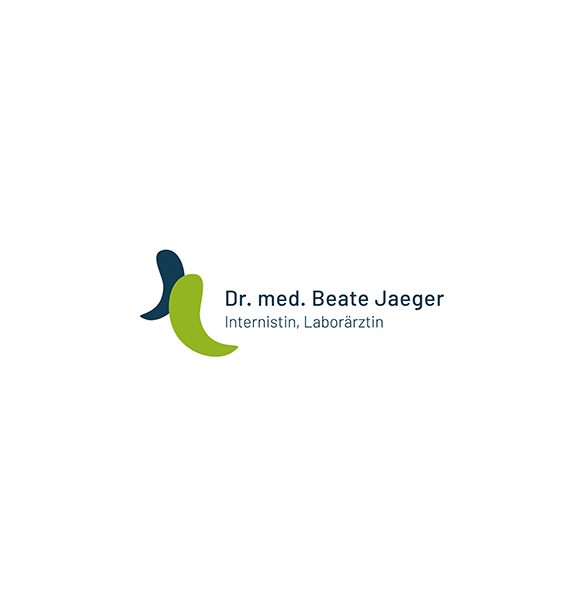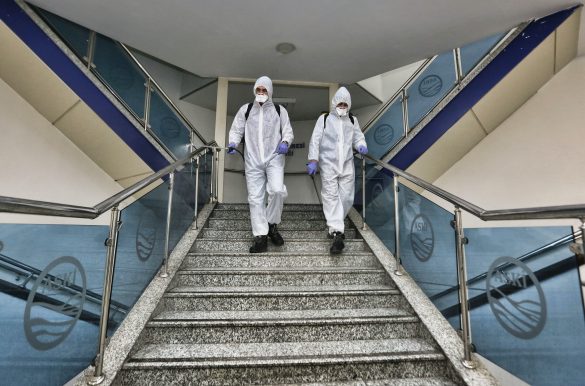The laboratory doctor and internist Dr. med. Beate Roxane Jaeger is the director of the Lipidzentrum-Nordrhein (Wertgasse 35, 45468 Mülheim / Ruhr) and has been treating patients with severe lipid metabolic disorders (therapy-refractory hypercholesterolemia) and the resulting sequelae with the so-called H.E.L.P. apheresis (heparin-induced extracorporeal LDL / fibrinogen precipitation) for years.
H.E.L.P. apheresis and the Long Covid / Post Covid Syndrome
Miss Dr. Jaeger describes how the experience in the use of H.E.L.P. apheresis can be applied to the treatment of Long Covid / Post Covid patients.
H.E.L.P.-Apherese
H.E.L.P. apheresis (heparin-induced extracorporeal LDL precipitation) is the focus of Dr. Beate R. Jaegers treatments. Dietrich Seidel, former medical director at the Großhadern Clinic in Munich, and Heinrich Wieland, former professor at the Institute for Clinical Chemistry at the University Clinic in Freiburg, are considered to be the discoverers of this process.
The H.E.L.P. procedure has been an available and established system for 36 years and is used annually in around 3,000 patients in Germany. The HELP apheresis is primarily aimed at patients with the most severe, otherwise therapy-refractory hypercholesterolemia and coronary heart disease (2009; Nature Clinical Practice Cardiovascular Medicine; DOI: 10.1038 / ncpcardio1456 and 2003; Therapeutic Apheresis and Analysis; DOI: 10.1046 / j.1526–0968.2003. 00072.x). Later it was used successfully, among other things, for the prevention and therapy of Graft Vessel disease after a heart transplant and for the therapy of hyperlipoproteinemia.
In addition to LDL, VLDL, and Lp (a), inflammation mediators, fibrinogen, proinflammatory adhesion molecules and other cytokines are also eliminated here. This continuous removal of coagulation and inflammation parameters improves organ blood flow and facilitates oxygen exchange.
The procedure is considered to be extremely well tolerated, is compatible with antiviral drugs and anticoagulants, and patients mostly find the procedure pleasant and often feel a significant improvement after the first few treatments.
In the first step, the plasma is separated from the other blood components. The separated blood plasma is mixed with a heparin acetate buffer, which lowers the plasma pH. This results in the binding of LDL‑C, Lp (a), fibrinogen to heparin. The heparin-protein precipitates are eliminated from the plasma circuit through a filter and the excess heparin is adsorbed with the aid of a polyanion exchanger. The physiological plasma conditions are then restored by bicarbonate dialysis and ultrafiltration and returned with the cellular components.
Long Covid / Post Covid Syndrome
So far, more than 3.5 million people in Germany have contracted Covid-19 and are considered to have recovered. But one in ten, i.e. around 350,000 people, continue to suffer from various long-term effects such as extreme exhaustion, breathing difficulties, chest and joint pain, odor disorders and persistent fatigue (CFS: chronic fatigue syndrome). One in five people also experience psychological symptoms such as anxiety, depressed mood and sleep disorders after a corona infection. Around 50 different symptoms have now been described.
Dr. med. Beate R. Jaeger takes on this clinical picture and suggests the extracorporeal procedure for long-covid therapy — in particular to maintain the microcirculation of the lungs. Dr. Jaeger points out that the importance of H.E.L.P. apheresis for COVID-19 therapy is actually mainly due to the observations of the pathologists, because they described the generalized endotheliitis associated with COVID-19:
“Viruses have already been detected in the alveolar epithelium and in the endothelial cells of deceased COVID-19 patients. They show a picture of a simultaneous massive inflammatory and procoagulatory activation with cell necrosis, thrombi and massive fibrinoid deposits in the microcirculation of the lungs. These fibrin deposits stick together the lung tissue and massively hinder the gas exchange ”. This means that H.E.L.P. apheresis can be used as a promising therapeutic approach for Long Covid Syndrome due to its anti-inflammatory and anticoagulant effects.
Who is affected by Post Covid?
Long Covid or Post Covid Syndrome can occur in all age groups (from children to adults). Regardless of the severity of the corona infection — from asymptomatic to severe — Long Covid can severely impair the quality of life of patients over a long period of time.
Dr. Jaeger’s goal is to increase public acceptance and awareness of Long Covid, initiate treatment approaches and research on the topic, and help Long Covid patients to restore their quality of life.
In the past few months, Dr. Beate R. Jaeger more than 100 patients with the most severe long-covid symptoms with the H.E.L.P. apheresis. The therapy results that have been good so far will soon be available as a study.
Dr. Jaeger’s work and research focus
Dr. med. Beate R. Jaeger studied medicine in Essen and Zurich from 1986 to 1993. In 1994 she wrote her dissertation in endocrinology for a doctorate in medicine at the University of Essen on the subject of “Thyroid metabolism in chronic hemodialysis patients” with Prof. Dr. D. Reinwein with the rating “Magna cum laude”.
Dr. Jaeger mainly focuses on the pathobiochemistry of metabolic diseases and thus also research into the causes of chronic and acute inflammatory processes of the endothelium. Endothelium is the inner skin of lymph and blood vessels. It represents a protective shield within the vessels that regulates the exchange of substances between tissue and blood. In addition, the endothelium adjusts various processes in the microvessels, such as the ability of the blood to flow, for example by inhibiting and activating coagulation processes.
Her clinical studies on the origin and development of atherosclerosis, atherothrombosis, hemostasis and rheology have contributed to the development of new preventive and therapeutic strategies. Meanwhile, Dr. Beate Jaeger is an independent contact for questions about atherosclerosis and its treatment and therapy with H.E.L.P. apheresis (heparin-induced extracorporeal LDL / fibrinogen precipitation.
So far, Dr. Beate R. Jaeger has published more than 50 scientific articles in specialist journals, including Lancet, Nature CP Cardio, NEJM and PLOS One. In 2009 she was awarded the Science Prize of the German Society for Nephrology.
Medical focus
- Lipoprotein metabolism disorders (dyslipoproteinemia)
- Therapy-refractory hypercholesterolemia with the resulting atherosclerotic diseases (stroke, heart attack)
- Disorders of primary (cellular) and secondary hemostasis (plasmatic blood coagulation)
- Rheological disorders (microcirculatory disorders with an increased risk of cerebrovascular complications such as peripheral arterial occlusive diseases, heart attacks
Beiträge
4 View








